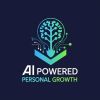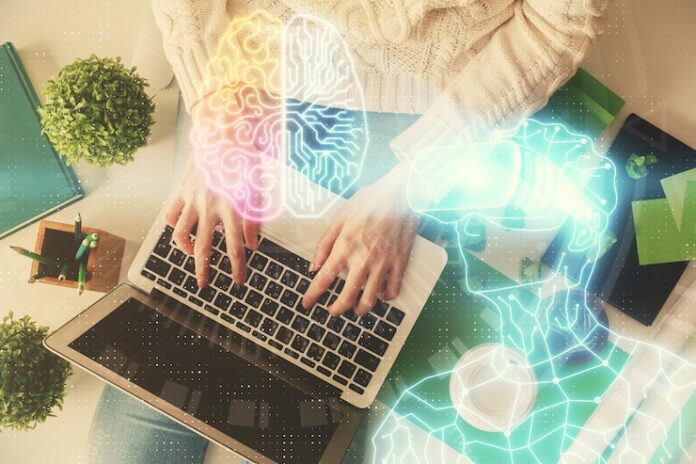Mental health has become one of the most pressing issues of our time. From rising anxiety levels to overwhelming stress and burnout, people across all age groups are looking for accessible solutions. Traditional therapy, while effective, can be expensive, hard to schedule, and sometimes intimidating to approach. This is where AI mental health support comes in as a game-changing alternative. Artificial intelligence is no longer limited to industrial automation or customer service. It’s now reaching deeply personal areas, including emotional wellness. AI tools are being designed to help people reflect on their feelings, practice mindfulness, and break patterns of negative thinking, all in real time, with no appointments or waitlists. The result is a growing population finding mental support from digital tools that talk, learn, and adapt.

🤖 Talking to Machines That Understand You
Imagine having someone to talk to whenever you feel overwhelmed, without worrying about being judged or misunderstood. That’s what AI chatbots offer. These bots aren’t just programmed to respond, they’re trained on psychological frameworks like CBT (Cognitive Behavioral Therapy) and DBT (Dialectical Behavioral Therapy) to offer informed, supportive replies.
Popular platforms like Woebot, Replika, Wysa, and Tess are designed to:
- Check in with how you’re feeling
- Ask open-ended questions to spark reflection
- Offer affirmations and guided exercises
- Suggest helpful resources like breathing exercises or journaling
These chatbots are built with natural language processing, meaning they can understand human language and respond in ways that feel warm and personal. Many users report that chatting with these bots feels surprisingly real, even comforting. For someone going through a rough day, that bit of connection can make a huge difference.
📱 How AI Apps Track, Guide, and Grow with You
While chatbots focus on conversation, other AI tools work behind the scenes to track and improve your mental patterns over time. Apps like Youper, Sanvello, Moodfit, and Mindstrong go beyond surface-level interactions. They collect data from your responses and usage patterns to build a profile of your mental state.
These apps often include:
- Emotion and mood tracking over time
- Personalized coping strategies
- Mindfulness and meditation routines
- Sleep and stress monitors
- Goal-setting for mental well-being
Over time, AI learns what triggers you, how your emotions shift during the day, and which tools help you most. Based on this, it adapts your experience to offer support exactly when and how you need it. This dynamic feedback loop turns these apps into digital wellness coaches who know you better every day.

🧬 Is There Science Behind AI Emotional Support?
Yes, and it’s growing stronger each year. Clinical studies and academic reviews are beginning to explore how effective AI-driven therapy tools are compared to traditional methods. Some early research suggests that users who engage with AI therapy apps regularly report reduced symptoms of anxiety, improved mood regulation, and even better sleep.
Key reasons why AI tools work include:
- Accessibility: You can talk to a bot anytime, anywhere.
- Anonymity: You don’t need to reveal personal details or fear judgment.
- Consistency: AI is always available. It doesn’t forget what you said yesterday.
- Scalability: These tools can help thousands of users at once.
While AI isn’t a licensed therapist, it acts as a bridge between emotional need and professional help. For many people, AI support is a safe and pressure-free way to begin the journey toward healing.
⚖️ The Benefits and Boundaries of AI Mental Health Tools
It’s easy to get excited about new technology, but when it comes to mental health, caution is important. Let’s take a clear look at both the benefits and limitations.
Benefits:
AI mental health tools offer wide access for people who might otherwise be left out of the system. They’re:
- Available 24/7, unlike most therapists
- Low-cost or even free
- Great for self-awareness and habit-building
- Non-judgmental, patient, and consistent
- Customizable based on user preferences
Limitations:
However, AI has limitations that we must keep in mind:
- Cannot replace deep therapy for trauma or psychiatric conditions
- Lacks human empathy and body language reading
- Might give generic advice to complex emotional issues
- User data can be a privacy concern
- Not suitable for emergencies or suicidal ideation
This means AI tools are best used for daily emotional care, reflection, and self-guided healing,not for treating severe conditions or crises. Users should combine AI tools with professional help when needed.

🧭 What the Future Holds: AI and Mental Wellness Innovation
Looking ahead, the future of AI in mental health is both exciting and complex. Developers are working on emotional AI that can detect voice tones, facial expressions, and even typing speed to assess emotional states. This could lead to digital companions who feel truly attuned to your mood. We may also see AI-human therapy hybrids, where therapists use AI to assist with notes, mood tracking, and emotional pattern recognition. This could help professionals offer more accurate, tailored care while reducing burnout. In addition, the integration of AI into wearables could allow devices like smartwatches and rings to monitor stress levels and prompt helpful interventions before a panic attack or burnout occurs. Ethics, however, must stay front and center. Developers must build with care, ensuring privacy, fairness, and inclusivity across all platforms.
💡 Conclusion: So, Can AI Help You Feel Better?
The answer is a cautious but hopeful yes. AI mental health support tools are transforming the way people care for their emotional well-being. They offer comfort, structure, and insight,especially for those who feel isolated or overwhelmed. While AI won’t replace a caring therapist, it can act as a supportive sidekick, one that listens, learns, and encourages you to grow. If you’re looking to improve your mental health, reduce daily stress, or simply feel more in control, AI tools may be a powerful, accessible place to start. You don’t have to face your feelings alone. Even if it’s just a smart app in your pocket, help is just a few taps away.


